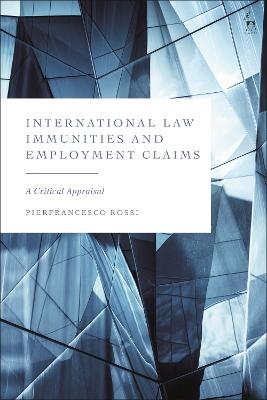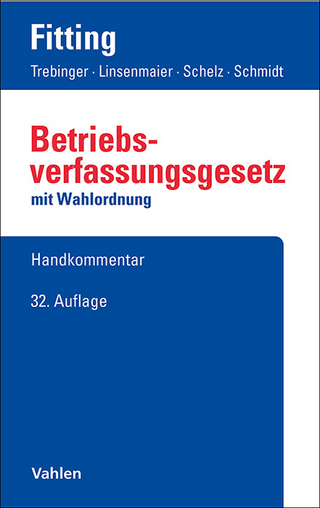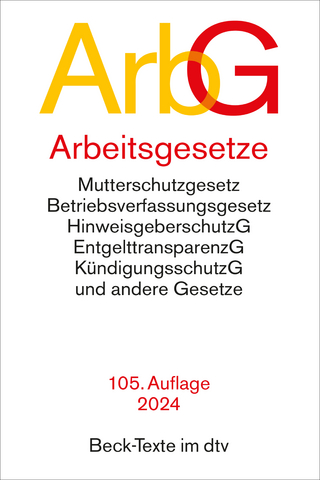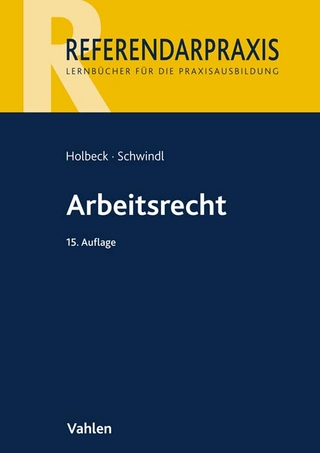
International Law Immunities and Employment Claims
Hart Publishing (Verlag)
978-1-5099-5301-1 (ISBN)
Pierfrancesco Rossi is Assistant Professor of International Law at the University of Teramo, Italy.
1. Introduction
2. The International Law Immunities from Civil Jurisdiction – An Overview
I. Introduction
II. Basic Concepts: Immunities, Jurisdiction and Substantive Law
III. The Functional Rationale of the International Law Immunities from Civil Jurisdiction
IV. Scope of State Immunity
A. The Sources of the Law of State Immunity
B. The Problematic Distinction between Acta Jure Imperii and Acta Jure Gestionis
V. Scope of International Organisation Immunity
A. The Sources of the Law of International Organisation Immunity
B. The Variety of Standards of International Organisation Immunity
VI. Scope of Diplomatic and Consular Immunity
VII. Conclusions
3. The Undue Persistence of Absolute Immunity in Employment Litigation
I. Introduction
II. Alleged Lack of Subject-Matter Jurisdiction of the Territorial State
A. Exclusive Jurisdiction of Foreign States and International Organisations
B. Exclusive Competence of International Organisations’ Internal Remedies
III. Absolute Immunity Based on Functionalist Policy Arguments
IV. Absolute Immunity Based on the Public Nature of Employment
V. Absolute Immunity Based on the Official Nature of Employment
A. Employment as an Official Act of Diplomatic and Consular Agents
B. Employment as an Official Act of International Organisations
VI. Persistence of Absolute Immunity under Express Treaty Provisions
VII. Conclusions: The Need for Limited Immunity Standards in Employment Litigation
4. Restrictive State Immunity Standards in Employment Matters
I. Introduction
II. The Emergence of Employment-Specific Approaches to Restrictive State Immunity
III. Approaches Based on the Nature of the Workplace
A. The ‘Workplace Test’ in Immunity Instruments and Judicial Practice
B. Drawbacks of the ‘Workplace Test’ and its Declining Relevance
IV. Approaches Based on the Status and Functions of the Employee
A. The Diffusion of the ‘Status and Functions Test’ in State Practice
B. The Varied Outcomes of the ‘Status and Functions Test’
C. The ‘Status and Functions Test’ under the UN Convention on State Immunity
V. Approaches Based on the Nationality and Residence of the Employee
VI. Approaches Based on the Subject Matter of the Claim
A. The Distinction between Monetary and Non-monetary Claims
B. The ‘Subject-Matter Test’ under the UN Convention on State Immunity
VII. Approaches Based on Forum Selection Clauses in the Employment Contract
VIII. Restrictive State Immunity in Employment Matters under Customary International Law
IX. Conclusions
5. Limited Immunity Standards for Employers Other than the State
I. Introduction
II. Limited Standards of International Organisation Immunity in Employment Matters
III. Limited Standards of Diplomatic and Consular Immunity in Employment Matters
A. Distinguishing Official and Non-official Employment of Staff
B. Employment as a Commercial Activity not Subject to Diplomatic Immunity
IV. Conclusions
6. Reconciling Immunities and the Employees’ Right of Access to Justice
I. Introduction
II. Approaches Deferring to International Obligations to Grant Immunity to Employers
III. Approaches Requiring the Availability to Employees of Alternative Means of Redress
A. The Diffusion of the ‘Alternative Remedies Test’ in Judicial Practice
B. The Requirement of Availability of the Alternative Remedy
C. The Requirement of Effectiveness of the Alternative Remedy
IV. The Risk of Remedy Gaps and the Need for a Consistent Approach
V. Conclusions
7. Conclusions
I. Argument No 1: Absolute Employer Immunity Is an Unfounded Legal Myth
II. Argument No 2: Well-Defined Standards of Limited Employer Immunity Can Be Identified
III. Argument No 3: The Equivalent Protection Test Should Apply to All Employer Immunities
IV. The Way Forward: Human Rights Law as an Agent of Coherence
| Erscheinungsdatum | 03.12.2021 |
|---|---|
| Verlagsort | Oxford |
| Sprache | englisch |
| Maße | 156 x 234 mm |
| Themenwelt | Recht / Steuern ► Arbeits- / Sozialrecht ► Arbeitsrecht |
| Recht / Steuern ► EU / Internationales Recht | |
| ISBN-10 | 1-5099-5301-9 / 1509953019 |
| ISBN-13 | 978-1-5099-5301-1 / 9781509953011 |
| Zustand | Neuware |
| Informationen gemäß Produktsicherheitsverordnung (GPSR) | |
| Haben Sie eine Frage zum Produkt? |
aus dem Bereich


